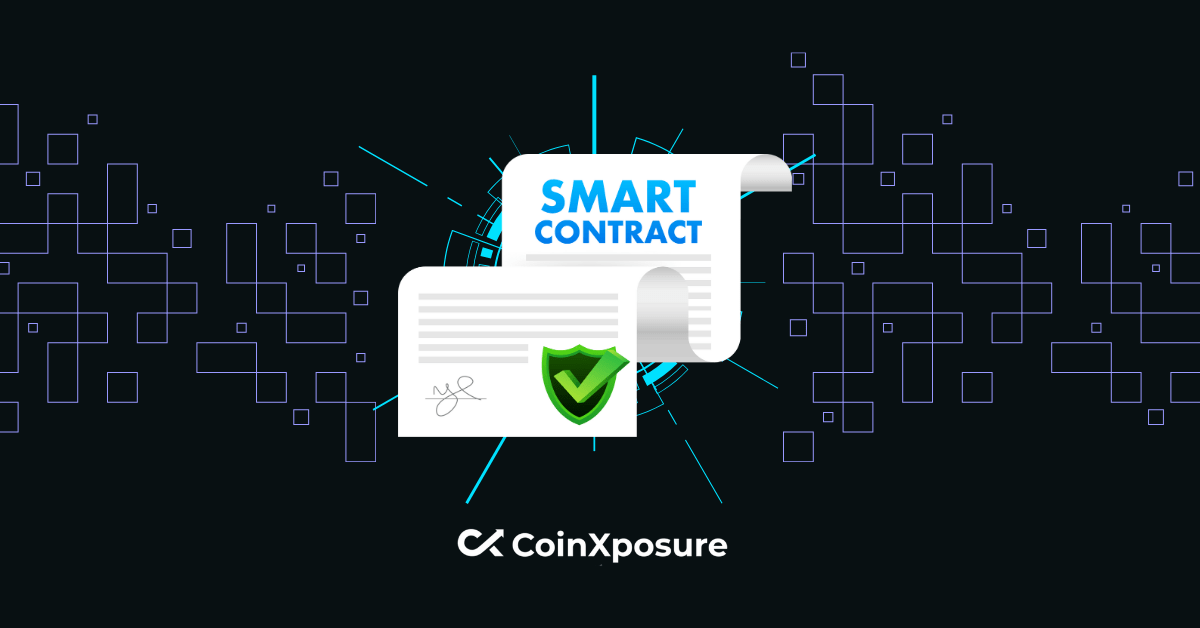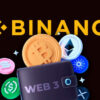
Smart Contracts and Their Crucial Role in DeFi Derivatives
The decentralized finance (DeFi) world is constantly evolving, and smart contracts are at the forefront of this change. Smart contracts are vital for many financial instruments, including derivatives, and are used to automate agreements and ensure DeFi platforms operate smoothly. Smart Contracts role in DeFi Derivatives
In this article, we’ll take a closer look at smart contracts and their crucial role in DeFi derivatives, exploring their functions, benefits, and impact on traditional financial markets.
What are Smart Contracts?
Smart contracts are self-executing agreements written in code that automatically enforce the terms and conditions of a contract when predefined conditions are met. These contracts run on blockchain networks, such as Ethereum, and are immutable and tamper-proof, providing trustless execution of transactions without intermediaries.
What are DeFi Derivatives?
DeFi derivatives are financial instruments that derive value from an underlying asset, such as cryptocurrencies or other digital assets. These derivatives enable users to engage in various financial activities, including speculation, hedging, and risk management, without the need for conventional intermediaries like banks or brokers.
Smart contracts have become the backbone of DeFi derivatives, providing the necessary automation, transparency, and trustless execution.

The Role of Smart Contracts in DeFi Derivatives
Smart contracts play a crucial role in DeFi derivatives. They function in various areas, which include:
- Automated execution
- Trustless transactions
- Programmability
- Decentralized governance
Automated Execution
Smart contracts automate the execution of derivative contracts, including trade settlements, margin calls, and liquidations, based on predefined rules and conditions.
Smart contracts automatically execute trade settlements based on predefined conditions, such as price triggers or expiration dates. For instance, in an options contract, the smart contract will automatically exercise the option if the price reaches a certain level.
Trustless Transactions
By operating on blockchain networks, smart contracts eliminate the need for trust between counterparties, as the terms of the contract are transparent and enforced by consensus.
Once deployed on the blockchain, smart contracts execute transactions according to predefined rules without the possibility of interference or manipulation. This immutability ensures that contract terms are upheld without relying on trust in centralized entities.
Programmability
Smart contracts are programmable, allowing developers to create complex derivative products with customizable parameters, such as options, futures, swaps, and synthetic assets.
Using smart contracts, developers can create a wide range of derivative products, including options, futures, swaps, and structured products. These contracts can be tailored to specific market needs and trading strategies, enabling innovation and flexibility in derivative trading.
Decentralized Governance
Many DeFi platforms incorporate decentralized governance mechanisms through smart contracts, enabling community-driven decision-making processes and protocol upgrades.
Smart contracts issue governance tokens to participants, granting them voting rights and decision-making power within the protocol. Holders of governance tokens can propose and vote on changes to the protocol, such as parameter adjustments or protocol upgrades.
Benefits of Smart Contracts in DeFi Derivatives
The implementation of smart contracts in DeFi derivatives provides numerous benefits to users and developers alike.
Some of these benefits are explained in this section:
- Transparency
- Security
- Efficiency and cost-effectiveness
- Accessibility
Transparency
Smart contracts provide transparency and auditability of transactions, as all contract code and transaction history are publicly available on the blockchain. This enhances trust among participants and reduces the risk of fraud or manipulation.
Security
Smart contracts are immutable once deployed on the blockchain, meaning they cannot be altered or tampered with. This ensures the integrity and security of derivative contracts, as they are resistant to hacking, censorship, and unauthorized modifications.
Efficiency and Cost-Effectiveness
Smart contracts automate the execution of derivative contracts, reducing the need for manual intervention and streamlining the trading process. This improves efficiency and lowers transaction costs compared to traditional financial markets.
Accessibility
Smart contracts enable anyone with an internet connection and a compatible wallet to participate in DeFi derivatives trading, regardless of their geographic location or financial status. This promotes financial inclusion and democratizes access to financial markets.

Application Scenarios of Smart Contracts in DeFi Derivatives
Various use cases or applications of smart contracts in DeFi derivatives exist. These scenarios include:
- Decentralized exchanges (DEXs)
- Automated market makers (AMMs)
- Synthetic asset platforms
Decentralized Exchanges (DEXs)
Smart contracts power decentralized exchanges (DEXs), where users can trade derivative contracts directly with each other without the need for intermediaries. These smart contracts handle order matching, trade settlements, and asset custody in a trustless manner.
Automated Market Makers (AMMs)
Automated market makers protocols, such as Uniswap and SushiSwap, utilize smart contracts to facilitate liquidity provision and price discovery for derivative trading pairs. These smart contracts algorithmically determine asset prices and adjust liquidity pools based on supply and demand dynamics.
Synthetic Asset Platforms
Smart contracts enable the creation of synthetic asset platforms, such as Synthetix and Mirror Protocol, where users can trade derivatives that mimic the price movements of real-world assets, such as stocks, commodities, and fiat currencies. These smart contracts collateralize synthetic assets with crypto assets, providing exposure to traditional markets without the need for intermediaries.
Challenges and Considerations Associated with Smart Contracts in DeFi Derivatives
While smart contracts bring numerous advantages to the DeFi derivatives space, challenges exist. Some of these include:
- Scalability
- Security audits
- Regulatory compliance
- Privacy concerns
- User education
- Code complexity
- Oracle risks
Scalability
Scalability remains a challenge for smart contracts in DeFi derivatives, as blockchain networks may struggle to handle the volume of transactions required for mass adoption. Solutions like layer two scaling solutions and blockchain interoperability protocols are being developed to address scalability issues and improve transaction throughput.
Security Audits
Smart contracts in DeFi derivatives are susceptible to bugs, vulnerabilities, and exploits, which can result in financial losses for users. Conducting thorough security audits and code reviews is essential to identify and mitigate potential risks before deploying smart contracts on the blockchain.
Regulatory Compliance
DeFi derivatives may face regulatory scrutiny and compliance requirements in various jurisdictions, particularly concerning investor protection, anti-money laundering (AML), and know-your-customer (KYC) regulations. Ensuring compliance with regulatory standards while maintaining decentralization and privacy is challenging for DeFi platforms.
Privacy Concerns
Achieving transparency in smart contracts may raise privacy concerns, necessitating a delicate balance between openness and protecting sensitive user information.
User Education
DeFi participants need a solid understanding of smart contract functionality to mitigate the risk of errors and ensure secure interactions.
Code Complexity
Complex smart contract code can make auditing and debugging more challenging, increasing the risk of undetected vulnerabilities.
Oracle Risks
Smart contracts often rely on external data sources known as oracles. If these oracles are compromised or provide inaccurate data, it can lead to unexpected outcomes and financial losses.
Conclusion
Smart contracts have taken center stage in DeFi derivatives, revolutionizing financial transactions. Through their automation and transparency, they offer a strong foundation for the growth and development of decentralized finance.
As the DeFi ecosystem continues to evolve, the role of smart contracts in derivatives is expected to expand, opening doors for more inclusive, efficient, and decentralized financial markets.





